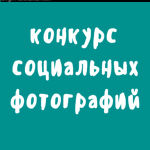Personnel Department vs Human Resources
Managing Human Resources in Kazakh Way
Managing human resources is becoming increasingly important for Kazakh companies and the speciality of HR is in high demand among local university graduates.
Eight or nine years ago, there were few specialists in this sphere in the country and they all knew one another in person, and their professional level was practically the same. However, there is now a whole array of HR specialists. There are now experts specialising in a wide range of issues and who were pioneers in their sphere. There are also “middle-tier personnel” with three to five years of experience and very young specialists who have just started to learn the profession. The attitude to this job has also changed in Kazakhstan. HR is now perceived not as something fashionable but as a special management task and an important intangible asset of a company. This, of course, has had a positive impact on the necessity of this profession in the Kazakh labour market.
The situation in this sphere is mainly defined by the country’s economic development and the rapid growth in the number of enterprises. National business has now arrived at the understanding that without solving the “human resources” problem it is hard to encounter competition in the country, let alone occupy a place in the sun in the international market. As a result, medium-sized companies, which have been in operation for seven to ten years and have their business reputation, show a great interest in employing HR specialists. However, small businesses cannot so far afford the “luxury” of employing even one HR manager.
At the same time, in major local companies auxiliary HR departments are turning into key divisions responsible not only for personnel and administrative paperwork and recruiting staff but also drafting and fulfilling training programmes, building corporate culture and the strategic vision of the business. Not only staff turnover and the number of training courses a year, but also the rate of a company’s profit to the number of staff members, define the efficiency of an HR manager’s work.
However, it is not easy to judge how developed the sphere of managing personnel is in our country at the moment. With this aim the Renaissance communicative management agency conducted a special opinion poll among 147 local HR specialists in 2006.
First, it found out about posts the respondents occupied in their companies. As the poll showed, HR managers were at the top (31%) of this chart, heads of personnel department came second (27%) and directors of personnel were third (24%). Other respondents were working as regional managers, trainers or advisers on labour issues.
A total of 78% of respondents regarded drafting a company’s HR budget as a priority in their work, whereas 70% pointed to adopting strategic decisions. The poll showed that HR specialists wanted to play an important role in setting salaries of staff members and developing corporate culture. However, only slightly over 38% of those polled named the adaptation of staff and organisational development as a priority.
Based on the poll results we can conclude that despite the fact that HR managers traditionally spend a lot of time on current and administrative issues, strategic aspects are acquiring a greater significance. The director of Renaissance, Svetlana Krutskikh, believes that HR strategies’ positive effect on companies’ financial indicators boosted the importance of HR management in the eyes of owners and top managers.
The poll also established that HR specialists could now interact directly with top management, taking part in developing company strategies. For example, 83% of HR services are accountable directly to general directors or chairs of boards of directors and 20% of directors of HR departments are members of boards of directors and companies’ top management.
The poll results also proved that in practice HR managers “managed human resources” formally in many local companies and their functions were limited to paperwork and letters of appointment and dismissal. However, mainly medium-tier managers, not top managers, use HR managers’ services. For example, 86% of respondents spend their time mainly on paperwork and 61% on recruitment. This means that HR specialists’ mission, except for rare cases, is limited to “paperwork-recruitment-organisational” activities.
As for HR’s functions as the adaptation of staff members and their motivation and developing corporate culture, these are not used to their full potential in Kazakh companies. However, corporate culture is the backbone of HR because creating a positive emotional atmosphere, building intra-corporate communications, a good system for new staff members’ adaptation and developing their loyalty make a company easy to run.
Discrepancies in the declared aims and real functions of HR can be explained by many reasons. Firstly, the professional HR community is only now being created in Kazakhstan. The poll showed that HR specialists were mainly educated in psychology (33% of respondents), teachers (24%), lawyers and so on. This “weakens” the domestic HR sphere – the labour market is facing shortages of specialists with progressive HR technology knowledge and practical experience.
Secondly, top managers are still not ready to fully delegate strategic management functions to HR departments. This happens despite the fact that when they recruit HR specialists they boastfully say that they are ready to delegate extremely “directorial” powers to them, including formulating the principles of personnel policy, developing and adopting a pay system, recruiting and rotating staff members and organising trainings and professional development for them.
These development diseases can be overcome by the professional training of HR managers, on the one hand, and by reconsidering their role in companies, providing them with wider powers and turning them from ordinary executives into professional consultants, on the other hand. HR specialists themselves agree with this and admit that without radical changes in their way of thinking and without new knowledge they will not be able to change their status and functions fundamentally.
Increasing the role of HR managers is a global trend. For example, in the past many top managers of US firms regarded spending on personnel as expenditure, whereas now they treat it as investment in professional and productive workers. The attitude of top managers towards potential staff members also changed – productivity replaced loyalty as the main criterion in recruitment. In addition, in fighting for professionals, companies increasingly often employ headhunting, a quite crude method of finding and luring experienced specialists.
Table of contents
Kazakh Banks: Growth Risks Dmitriy Angarov, Aleksey Kechko, James Watson
The new DHL cargo terminal in Kazakhstan Evgeny Zabiyakin
Kazakhstan’s Electric Power Sector: New Challenges and Opportunities Editor’s overview
Bogatyr’s New Achievement. The company’s tenth anniversary sees a record coal output Dennis C. Price
India and Kazakhstan: Dimensions of Cooperation Asoke Kumar Mukerji
IT Training: How to Bring Together the Interests of Business and the State Aleksandr Vasilyev
The Promised Land: An Overview of the Almaty Land Market Stanislav Glazkov










